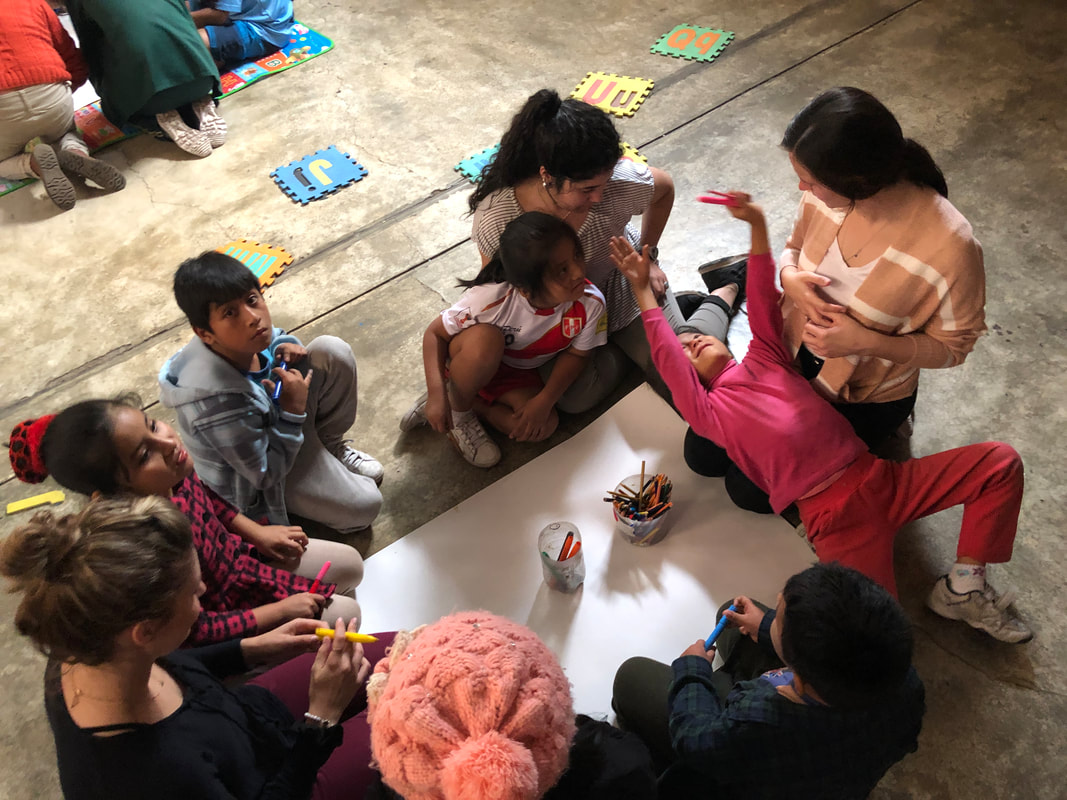|
I’ve been thinking a lot lately about student-centered pedagogy. This is a phrase that gets thrown out a lot by progressive educators, a phrase intended to invoke equality, culturally relevant teaching, social justice, funds of knowledge, humanizing pedagogies–you name it. Student-centered pedagogy is a buzzword for all that is ‘good’ in teaching. Even I’m guilty as charged. I talk with my student teachers about how their teaching can be more student-centered, how they can become ‘the guide on the side’ instead of ‘the sage on the stage,’ as Sister Mary (one of my education professors at Dominican University) used to say. This is certainly something I believe in, but I also recognize that it is not what all parents and communities want for their children; it is not always culturally appropriate; nor is it always successful. It can also be really difficult to accomplish. And besides–if everything is so student-centered, what’s the point of the teacher? Oh, and, what does ‘student-centered pedagogy’ actually mean? If I look back at my K-12 teaching critically, I am forced to acknowledge that, in fact, I often was not student-centered in my practice. Certainly, I created opportunities for critical thinking, for independent work, for cooperative learning, for higher-order problem solving, for authentic assessment, but my classrooms were very teacher-centered and teacher-directed. Which was generally okay. My students were highly successful; my classroom was a tightly run ship; I worked collaboratively with parents and community members to make sure our little babies were learning and achieving. And as Gloria Ladson-Billings writes in The Dreamkeepers, it’s not a particular practice or method that makes teachers culturally relevant (or multicultural or social justice or equitable…insert your favorite name for this kind of teaching here) pedagogues. It’s their political orientation to their work; it’s their ability to teach students to become culturally literate, socially critical, high achieving thinkers. I would categorize my own work as moving in this direction. But still. I am sure that by the end of a semester with be as their instructor/supervisor, my students know they should be talking about and striving for student-centered teaching. My hypocrisy gets worse, though. Even my undergraduate student teaching seminar is not particularly student-centered. I plan lessons, assign readings, dictate topics for discussion. This is not to say that I am a dictator. No! I am constantly probing them for feedback and topics and concerns and questions. But my seminar is still pretty teacher-centered. Why does this matter? Well, the culmination of the undergraduate education program is the e-portfolio, a completely student-centered project. It has been really difficult to mesh this project into my teacher-centered university classroom. These two approaches to teacher education conflict deeply. Also, I regularly and repeatedly hear from student teachers–both at the beginning and at the end of the semester–that they crave a student-centered space. They are tired of being taught; they are ready to be teachers. Finally, I am always saying that I am not the expert on how to be the ‘best’ or even a ‘good’ teacher; I am always saying that my voice is not privileged over theirs or their cooperating teachers, and that in fact we are all equal members of our collaborative and reflective triad. I say this, but I’m not necessarily sure that I live this. I’m worried that my practice is a bit hypocritical: Do as I say, not as I do. Is that really the kind of educator I want to be? This semester, I trying to push myself into a paradigm shift. I am consciously trying to be far more student-centered in my university teaching. Certainly, I am still responsible for my students’ learning and progress; I’m not abdicating those responsibilities. But I also need to recognize that, (1) sometimes I can be too much of a know-it-all; (2) students resent that, and they resent when their voices and experiences are not centered in our work; (3) students have already been in classrooms and methods classes for two years, and the last thing they want is for someone else to teach them about teaching; (4) their philosophies and approaches to education may very well be different than mine, and my approach and philosophy should not be privileged in our work together; and (5) they are on the cusp of being in charge of their own classrooms, and it’s my ultimate job this semester to make sure they are competent, confident, and independent educators. To be anything other than student-centered at this juncture is, I think, to hinder their progress and development. There are a few concrete ways that I’m altering my seminar space and my supervisory role to allow myself to become the educator I want to be:
Really, though, this is just the tip of the iceberg. I am trying really hard this semester to be a different kind of teacher educator. We’ll see how it goes.
0 Comments
Leave a Reply. |
AboutWhile living in Mexico, I joked that speaking Spanish forced me to be far more Zen about life: Since I could only speak in the present tense, I was forced to just live in that present tense. Archives
June 2023
Categories
All
photosLike what you see? That's mostly Ross Freshwater. Check out my talented partner-in-life's photo gallery. |

 RSS Feed
RSS Feed